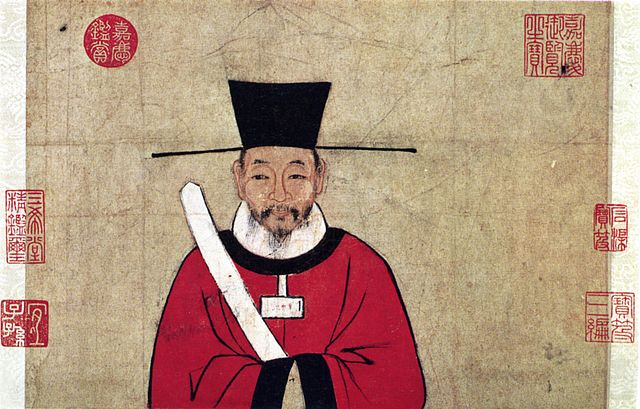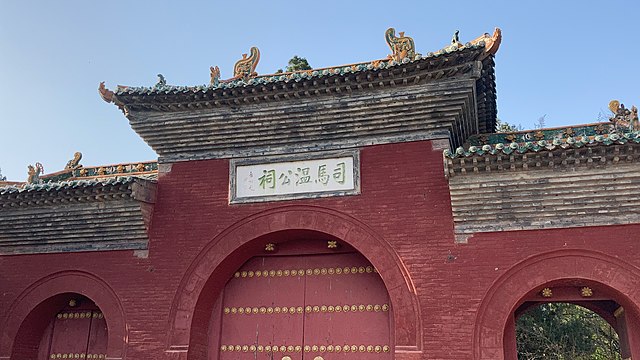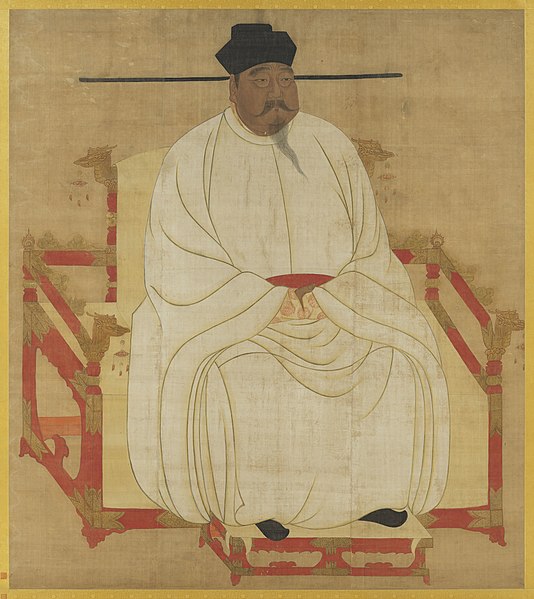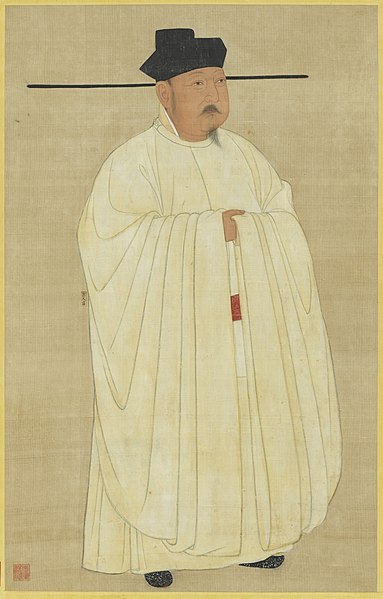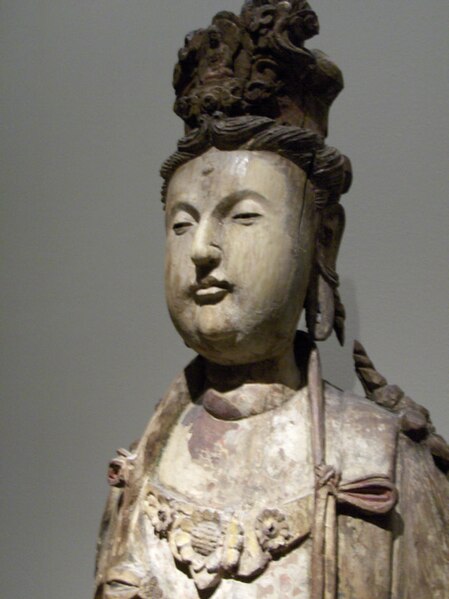Sima Guang, courtesy name Junshi, was a Chinese historian, politician, and writer. He was a high-ranking Song dynasty scholar-official who authored the Zizhi Tongjian, a monumental work of history. Sima was a political conservative, who opposed the reforms of Wang Anshi.
Sima Guang
Sima Wengong Temple in Xia County, Shanxi, is the Sima family graveyard and shrine, and Sima Guang's resting place
Brush pot with the pot-breaking episode from the story of Sima Guang, transitional porcelain
The Song dynasty was an imperial dynasty of China that ruled from 960 to 1279. The dynasty was founded by Emperor Taizu of Song, who usurped the throne of the Later Zhou dynasty and went on to conquer the rest of the Ten Kingdoms, ending the Five Dynasties and Ten Kingdoms period. The Song often came into conflict with the contemporaneous Liao, Western Xia and Jin dynasties in northern China. After retreating to southern China following attacks by the Jin dynasty, the Song was eventually conquered by the Mongol-led Yuan dynasty.
Emperor Taizu of Song (r. 960–976), a court portrait painting
A portrait of Emperor Taizong of Song (r. 976–997)
A wooden Bodhisattva from the Song dynasty (960–1279)
Flock of Crane over Song Palace painting by Emperor Huizong

